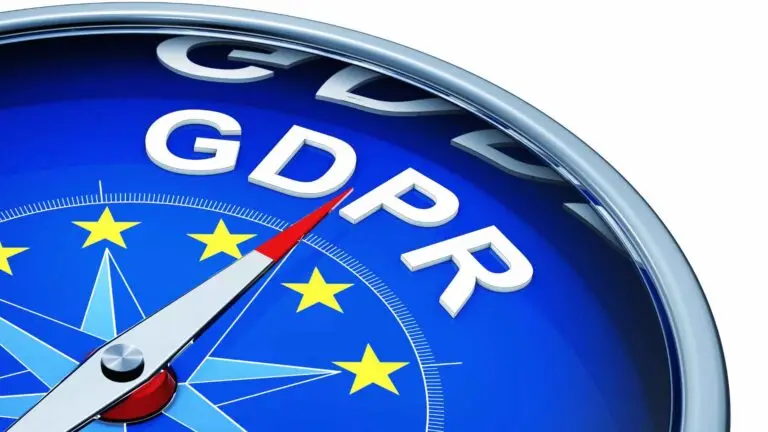Protecting Your Online Reputation: Why Removing Negative Content is Essential?
In today’s digital era, maintaining a positive online reputation is more important than ever. With the majority of consumers relying on the internet to make purchasing decisions, a single negative comment or review can tarnish your brand image and damage your bottom line. That’s why removing negative content is essential for protecting your online reputation.
Negative content, whether it’s a scathing review, a malicious social media post, or harmful articles, can spread like wildfire in the vast realms of the internet. It can undermine your credibility, discourage potential customers, and even lead to a decrease in sales. However, by taking proactive steps to remove or mitigate the impact of such content, you can safeguard your reputation and preserve the trust of your target audience.
In this article, we will explore the various reasons why removing negative content is crucial and how it can positively impact your brand. We will delve into the potential consequences of leaving negative content unchecked, discuss effective strategies for content removal, and provide actionable tips to maintain a positive online presence. Let’s get started on safeguarding your brand’s reputation and ensuring your success in the digital world.
The importance of online reputation management
In today’s digital landscape, where information is readily available at our fingertips, a brand’s online reputation holds immense value. A positive online reputation can be a powerful asset, driving trust, credibility, and customer loyalty. On the flip side, negative content can quickly tarnish your brand image and erode the hard-earned trust of your target audience. That’s why effective online reputation management is essential for any business or individual.
Managing your online reputation involves actively monitoring and controlling the information available about your brand on the internet. This includes not only your official website and social media accounts but also third-party platforms, review sites, forums, and blogs. By proactively monitoring these channels, you can identify and address negative content in a timely manner, preventing it from spiraling out of control and causing long-term damage.
The impact of negative content on your reputation
Negative content, whether it’s a scathing review, a defamatory blog post, or a damaging social media comment, can have far-reaching consequences for your brand. Firstly, it can undermine your credibility and authority in the eyes of potential customers. In a highly competitive digital marketplace, where consumers have countless options at their disposal, trust is a key factor in their decision-making process. A single negative comment or review can be enough to discourage potential customers from choosing your brand.
Furthermore, negative content can have a direct impact on your bottom line. Studies have shown that consumers are more likely to trust online reviews and ratings than traditional advertising. A negative review or complaint can deter potential customers from making a purchase, leading to a decrease in sales and revenue. Additionally, negative content can spread rapidly through social media and other online platforms, potentially reaching a wide audience and further damaging your brand’s reputation.
How negative content spreads online
The internet has revolutionized the way information is shared and consumed, making it easier than ever for negative content to spread like wildfire. A single negative comment or review can quickly gain traction and be shared across various platforms, reaching a wide audience within a short span of time. The viral nature of negative content amplifies its impact on your brand and makes it more challenging to control the narrative.
Social media platforms, in particular, play a significant role in the spread of negative content. With millions of active users, a negative post or comment can quickly gain visibility, leading to a snowball effect of shares, comments, and reactions. Additionally, search engines often rank highly on negative content, making it more visible and accessible to anyone searching for information about your brand.
The legal aspects of removing negative content
While removing negative content may seem like the obvious solution, it’s essential to navigate the legal aspects carefully. The internet is governed by various laws and regulations, and removing content without proper justification can have legal implications. It’s crucial to understand the legal framework surrounding negative content removal and work within its boundaries.
In some cases, negative content may fall under defamation or copyright infringement, giving you grounds to request its removal. However, it’s important to consult with legal experts to ensure you are acting within the confines of the law. Additionally, platforms like social media sites and review aggregators have their own policies and guidelines for content removal. Familiarize yourself with these policies to effectively navigate the process and increase your chances of success.
Steps to remove negative content from search results
When negative content appears in search results, it can have a lasting impact on your online reputation. Fortunately, there are steps you can take to remove or bury such content, minimizing its visibility and impact. Here are some effective strategies:
- 1. Contact the source: If the negative content originates from a specific website, blog, or social media account, reach out to the owner or administrator requesting its removal. Be polite, provide clear reasons for your request, and emphasize the potential harm it is causing to your brand.
- 2. Utilize legal channels: If the negative content is defamatory, false, or infringes on copyright, consult with legal experts to explore options for legal action. This may involve sending a cease and desist letter or filing a takedown request under the Digital Millennium Copyright Act (DMCA).
- 3. Engage in SEO efforts: By creating high-quality, positive content and optimizing it for search engines, you can push negative content further down the search results. This involves leveraging keywords, building backlinks, and engaging in content marketing strategies to improve your online visibility.
- 4. Leverage online reputation management services: There are professional services that specialize in managing online reputations. These services can help you monitor and remove negative content, as well as provide ongoing reputation management strategies to protect your brand.
Tips for proactively managing your online reputation
In addition to removing negative content, taking proactive steps to manage your online reputation is crucial for long-term success. Here are some actionable tips to help you maintain a positive online presence:
- 1. Monitor your online presence: Regularly monitor social media platforms, review sites, and search engine results for mentions of your brand. Set up Google Alerts or use online reputation management tools to receive notifications whenever your brand is mentioned.
- 2. Respond promptly and appropriately: If you come across negative content or receive a negative review, respond promptly and professionally. Address the concerns raised, offer a solution if applicable, and demonstrate your commitment to customer satisfaction.
- 3. Encourage positive reviews and testimonials: Actively encourage satisfied customers to leave positive reviews and testimonials on review sites, social media platforms, and your website. Positive reviews can counterbalance the impact of negative content and build trust with potential customers.
- 4. Engage with your audience: Regularly engage with your audience on social media, respond to comments and messages, and participate in relevant discussions. This shows that you are actively listening to your customers and reinforces your commitment to transparent communication.
Tools and resources for monitoring and managing your online reputation
Managing your online reputation can be a complex and time-consuming task, but fortunately, there are tools and resources available to streamline the process. Here are some useful tools for monitoring and managing your online reputation:
- 1. Google Alerts: Set up Google Alerts to receive emails whenever your brand is mentioned online. This allows you to stay informed about new content and respond promptly.
- 2. Social Mention: Social Mention is a free platform that allows you to monitor mentions of your brand across various social media platforms. It provides real-time analytics and sentiment analysis, helping you gauge the overall perception of your brand.
- 3. Reputology: Reputology is a reputation management tool that allows you to monitor and analyze reviews across multiple review sites. It provides a centralized dashboard for tracking and responding to customer feedback.
- 4. BrandYourself: BrandYourself is an online reputation management service that offers a range of tools and services to monitor and manage your online presence. It provides actionable insights and strategies to improve your online reputation.
The role of SEO in online reputation management
Search engine optimization (SEO) plays a crucial role in online reputation management. By optimizing your online content, you can influence search engine rankings and ensure that positive content appears prominently in search results. Here are some key SEO strategies for managing your online reputation:
- 1. Keyword research: Identify relevant keywords and phrases that are associated with your brand and incorporate them into your website content, social media profiles, and other online platforms. This helps search engines understand the context and relevance of your content.
- 2. Content creation: Create high-quality, informative, and engaging content that showcases your expertise and addresses the needs of your target audience. Regularly update your website with fresh content to attract search engine crawlers and improve your search rankings.
- 3. Link building: Build high-quality backlinks from reputable websites to boost your website’s authority and visibility in search results. Guest blogging, influencer partnerships, and content syndication are effective strategies for acquiring backlinks.
- 4. Optimize metadata: Ensure that your website’s metadata, including titles, descriptions, and headers, are optimized with relevant keywords. This helps search engines understand the content and purpose of each page, improving their visibility in search results.
Case studies of successful online reputation management
To illustrate the impact of effective online reputation management, let’s look at a few case studies:
- 1. Company A: Company A, a prominent e-commerce retailer, faced a surge in negative reviews due to shipping delays during the holiday season. By promptly responding to customer complaints, offering refunds and discounts, and implementing measures to improve their logistics, they were able to regain customer trust and mitigate the impact of negative content.
- 2. Individual B: Individual B, a well-known influencer, faced a backlash after making controversial statements on social media. By issuing a public apology, engaging in open and transparent dialogue with their audience, and actively addressing concerns, they were able to rebuild their online reputation and maintain a loyal following.
- 3. Brand C: Brand C, a global technology company, faced a damaging article published by a reputable news outlet that questioned the security of their products. By issuing a detailed response, providing evidence to refute the claims, and actively engaging with journalists and customers, they were able to restore confidence in their brand and protect their reputation.
Conclusion: Taking control of your online reputation
In the digital age, where information travels at lightning speed, protecting your online reputation has never been more crucial. Negative content can have far-reaching consequences, damaging your brand’s credibility, discouraging potential customers, and impacting your bottom line. By taking proactive steps to remove negative content, manage your online presence, and leverage SEO strategies, you can safeguard your reputation and ensure long-term success. Remember, your online reputation is a valuable asset that requires constant attention and nurturing. Stay vigilant, be responsive, and take control of your online reputation to thrive in the digital world.







